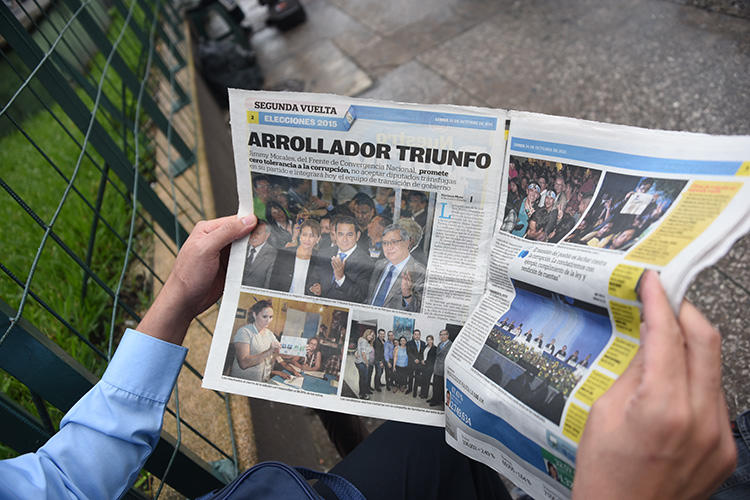A Guatemalan judge on July 17, 2018, approved a court order allowing a government official to sue journalist José Rubén Zamora for psychological violence and discrimination, and barring Zamora from writing about the official under a law created to prevent violence against women, according to a CPJ phone interview with Zamora on July 19, 2018, and to news reports.
The judge’s ruling bans Zamora, a prominent investigative journalist and publisher of news outlet elPeriódico, and elPeriódico from mentioning Guatemalan Foreign Minister Sandra Jovel in print or online, according to the reports. Zamora is also barred from approaching her home or workplace for three months.
Zamora told CPJ he believes the case is related to his outlet’s critical reporting about the Guatemalan government’s foreign policy and Jovel’s work in particular. In recent months, Zamora and elPeriódico have published articles on alleged mismanagement within the Foreign Ministry and policies such as President Jimmy Morales’ public support for U.S. President Donald Trump and the Guatemalan government’s “subservience regarding families being separated at the border in the U.S.,” Zamora said.
Jovel filed the case against Zamora on July 5, 2018, for alleged psychological violence against women and discrimination based on the Law Against Femicide and Other Forms of Violence Against Women, in response to elPeriódico articles that allegedly referred to her in an “abusive manner,” according to the Guatemala City-based Center for Informative Reports on Guatemala (Cerigua).
In the suit, Jovel claimed she had experienced emotional and psychological trauma as a result of Zamora’s work and criticism of her, the journalist told CPJ.
Zamora told CPJ his legal team believes Jovel’s use of the law is unconstitutional, since the resulting court order prohibits him or any other columnist at elPeriódico from publishing content about her work or accessing her workplace for a period of three months.
The Ministry of Foreign Affairs and Jovel declined to comment on the situation to CPJ over the phone or via email. A spokesperson for Jovel described the case as a “personal matter,” during a phone call with CPJ.
Zamora told CPJ he has appealed to the Guatemalan Constitutional Court to overturn the judge’s ruling.
This is not the first time that the Law Against Femicide and Other Forms of Violence Against Women has been used against Zamora. In December 2013, then Vice President Roxana Baldetti sued Zamora under the same law for psychological damage due to critical articles in elPeriódico, according to the Knight Center for Journalism in the Americas. Baldetti is now in jail following a customs corruption scandal that led to her resignation, but Zamora told CPJ her case against him is still standing.
“This is a very serious and arbitrarily used law. It has been a subject of much controversy and discussion, because any public official can use it against journalists without the need for research into the case,” Zamora told CPJ.
Zamora, a 1995 CPJ International Press Freedom Award honoree, has previously been the target of violent attacks, and elPeriódico was the target of cyberattacks.
